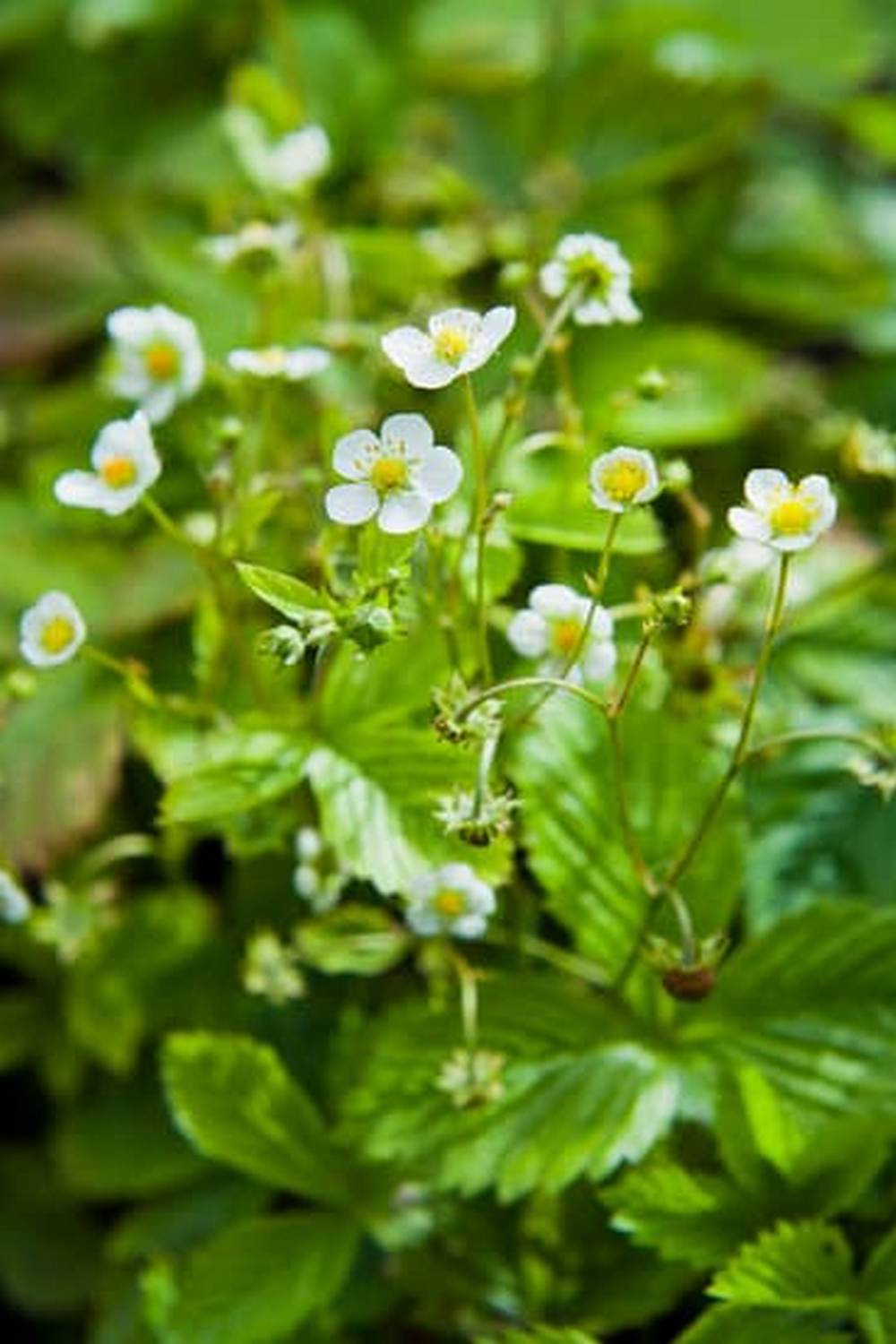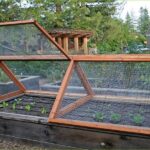Zone 11 vegetable gardening refers to the specific planting zone designated by the USDA based on climate characteristics. Understanding Zone 11 is crucial for successful vegetable cultivation in this region, which includes areas with a year-round warm climate. With the right knowledge and techniques, gardeners in Zone 11 can enjoy a bountiful harvest of their favorite vegetables throughout the year.
In Zone 11, gardeners have the unique advantage of being able to grow a wide variety of vegetables due to the consistently warm temperatures. While some regions may experience occasional frosts, overall, this zone provides an ideal environment for productive vegetable gardening. By familiarizing themselves with the best practices tailored to Zone 11 conditions, gardeners can optimize their harvest and ensure thriving plant growth.
To make the most of Zone 11 vegetable gardening, it is essential to consider factors like climate, weather patterns, soil quality, irrigation methods, pest control strategies, and seasonal planting schedules. Each of these components plays a crucial role in determining the success of a vegetable garden in this region. By delving into these aspects and following expert tips and guidelines, gardeners can cultivate healthy vegetables all year round in Zone 11.
Best Vegetables to Grow in Zone 11
Warm-Season Vegetables
In Zone 11, where the climate is mostly warm and tropical, there are a variety of vegetables that thrive in this environment. Warm-season vegetables such as tomatoes, peppers, eggplants, cucumbers, and squash are popular choices for gardeners in this zone.
These vegetables require adequate sunlight and warm temperatures to grow successfully, making them perfect for the year-round warmth of Zone 11. Planting these veggies in well-draining soil enriched with compost can help them flourish and produce bountiful harvests.
Herbs and Root Vegetables
Herbs like basil, cilantro, mint, and parsley are also great options for Zone 11 vegetable gardening. These aromatic herbs not only add flavor to your dishes but also attract beneficial insects to your garden. Additionally, root vegetables like carrots, beets, radishes, and sweet potatoes can thrive in Zone 11’s climate. Ensure that the soil is loose and well-drained for these crops to develop healthy roots.
Leafy Greens
Leafy greens such as lettuce, spinach, kale, and Swiss chard are excellent choices for Zone 11 vegetable gardening. These cool-season vegetables can thrive in the milder months of winter when temperatures drop slightly in this zone. Planting leafy greens in partial shade can help protect them from the intense heat of summer. Regular watering and mulching will also aid in maintaining moisture levels in the soil for optimal growth of these veggies in Zone 11.
Climate and Weather Considerations in Zone 11
When it comes to vegetable gardening in Zone 11, understanding the climate and weather considerations is crucial for success. Zone 11 is characterized by its tropical climate, with consistently warm temperatures throughout the year. The average annual minimum temperature in this zone ranges from 40 to 50 degrees Fahrenheit, making it an ideal environment for growing a wide variety of vegetables.
Microclimates in Zone 11
While Zone 11 as a whole has a tropical climate, there are also microclimates within this zone that can affect vegetable gardening. Coastal areas in Zone 11 may experience more humidity and salt exposure, while inland areas might have slightly cooler temperatures. It’s important to take these microclimates into account when choosing which vegetables to grow and determining the best planting locations within your garden.
Rainfall Patterns and Watering Needs
In Zone 11, rainfall patterns can vary depending on the specific location within the zone. Some areas may receive consistent rainfall throughout the year, while others may have distinct wet and dry seasons. It’s essential to monitor the rainfall patterns in your area and adjust your watering schedule accordingly.
Proper irrigation techniques, such as drip irrigation or soaker hoses, can help ensure that your vegetable plants receive adequate moisture without being overwatered. Additionally, mulching can help retain soil moisture and reduce evaporation in this warm climate.
Soil Preparation and Maintenance Tips for Zone 11
Zone 11 vegetable gardening requires special attention to soil preparation and maintenance to ensure healthy plant growth and bountiful harvests. In Zone 11, which experiences consistently warm temperatures and high humidity, the soil tends to be well-draining and rich in nutrients. However, it is still essential to amend the soil with organic matter such as compost or aged manure to improve its overall structure and fertility.
One important aspect of soil preparation in Zone 11 is regular testing to determine the pH level and nutrient content of the soil. This information will help you make informed decisions about which amendments are needed to optimize plant growth. Many vegetables thrive in slightly acidic soil with a pH range between 6.0 and 6.8, so adjusting the pH accordingly can significantly impact their performance in your garden.
In addition to amending the soil, regular maintenance practices such as mulching can help conserve moisture, suppress weeds, and regulate soil temperature in Zone 11 vegetable gardens. Organic mulches like straw, leaves, or grass clippings can also break down over time, adding valuable organic matter back into the soil. By incorporating these soil preparation and maintenance tips into your gardening routine, you can create a fertile foundation for a successful harvest of fresh, flavorful vegetables in Zone 11.
| Aspect | Recommendation |
|---|---|
| Amending Soil | Use organic matter like compost or aged manure |
| pH Testing | Regularly test pH levels for optimal plant growth |
| Mulching | Apply organic mulches for moisture retention and weed suppression |
Irrigation and Watering Techniques for Zone 11 Vegetable Gardening
When it comes to successful zone 11 vegetable gardening, efficient irrigation and watering techniques are essential to ensure that your plants thrive in the warm and sometimes arid climate of this region. Proper watering not only helps your vegetables grow healthy and strong but also plays a significant role in preventing diseases and stress on your plants.
Listed below are some valuable tips for irrigation and watering techniques specifically tailored for zone 11 vegetable gardening:
- Consider installing a drip irrigation system: Drip irrigation is an excellent option for zone 11 vegetable gardens as it delivers water directly to the roots of the plants, reducing the risk of water wastage through evaporation. This method also helps prevent moisture-related diseases that can occur with overhead watering.
- Water deeply and infrequently: In zone 11 where temperatures can soar, it’s crucial to water your vegetables deeply but less frequently. This encourages the roots to grow deeper into the soil, making them more resilient to drought conditions. Aim for at least 1 inch of water per week, adjusting based on weather conditions.
- Use mulch to conserve moisture: Applying a layer of organic mulch around your vegetable plants can help retain moisture in the soil, reduce water evaporation, and suppress weed growth. Mulching also helps regulate soil temperature, keeping it cooler during hot days in zone 11.
By implementing these irrigation and watering techniques in your zone 11 vegetable garden, you can ensure that your plants receive the right amount of moisture they need to flourish despite the challenging climate conditions. Remember to monitor your plants regularly for signs of over or under-watering and adjust your watering schedule accordingly for optimal growth.
Pest and Disease Management in Zone 11
Zone 11 vegetable gardening can be a rewarding experience, but it also comes with its challenges when it comes to pest and disease management. One of the most common pests that affect vegetables in this zone is aphids. These small insects feed on plant sap and can quickly multiply, causing damage to young shoots and leaves. To control aphids in your garden, consider using biological controls like ladybugs or lacewings, or organic products such as neem oil.
Another common issue in Zone 11 vegetable gardens is powdery mildew, a fungal disease that thrives in warm and humid conditions. This disease often affects cucumbers, squash, and beans. To prevent powdery mildew, make sure to provide adequate air circulation around your plants by properly spacing them apart. Additionally, avoid overhead watering which can create the moist environment where this fungus thrives.
When it comes to managing pests and diseases in Zone 11 vegetable gardening, proper hygiene practices are essential. Remove any diseased or infested plant material promptly to prevent the spread of pests and diseases to healthy plants. Regularly inspect your plants for any signs of trouble so you can address issues early on before they become major problems.
| Pest/Disease | Management Techniques |
|---|---|
| Aphids | Use biological controls like ladybugs or neem oil |
| Powdery Mildew | Ensure good air circulation and avoid overhead watering |
| Proper Hygiene Practices | Regularly remove diseased plant material and inspect for issues |
Seasonal Planting Guide for Zone 11 Vegetable Gardening
When it comes to vegetable gardening in Zone 11, understanding the seasonal planting guide is essential for a successful harvest. With its tropical climate and consistently warm temperatures, Zone 11 offers a long growing season that allows for multiple planting opportunities throughout the year. By following a strategic planting schedule, you can maximize your garden’s productivity and enjoy a variety of fresh produce all year round.
To make the most of your Zone 11 vegetable garden, consider the following seasonal planting guide:
- Spring (March-May): In the spring months, focus on planting heat-loving vegetables such as tomatoes, peppers, eggplants, and cucumbers. These crops thrive in the warm weather and will set fruit well during this time.
- Summer (June-August): As the temperatures rise in Zone 11 during the summer months, it is important to choose heat-tolerant vegetables for your garden. Consider planting okra, sweet potatoes, and southern peas to ensure a bountiful harvest.
- Fall (September-November): With cooler temperatures starting to appear in fall, now is the perfect time to plant cool-season crops such as lettuce, spinach, kale, and carrots. These vegetables will thrive in the milder weather of Zone 11.
By carefully planning your vegetable garden according to each season’s specific needs and requirements in Zone 11, you can enjoy a diverse range of fresh produce throughout the year. Be sure to take into account factors such as temperature changes and sunlight exposure when deciding what to plant during each season. Following this seasonal planting guide will help you create a thriving and productive garden that yields delicious vegetables for your table.
Remember that every region has unique characteristics that influence plant growth and development. By adapting your gardening practices to suit the conditions of Zone 11 properly were necessary will help ensure a successful harvest every season. Whether you are an experienced gardener or just starting out with zone 11 vegetable gardening focus on this seasonal planting guide can help you make informed decisions about what to plant when for optimal results.
Harvesting and Storage Tips for Zone 11 Vegetables
When it comes to harvesting vegetables in Zone 11, timing is key. Each vegetable has its own specific time of maturity for harvesting, so it’s important to keep track of when they were planted and how long they typically take to reach maturity.
For example, tomatoes are usually ready for harvest when they are firm and fully colored, while lettuce should be picked when the leaves are crisp and vibrant. Harvesting at the right time ensures that you get the best flavor and quality from your vegetables.
After harvesting your vegetables, proper storage techniques are essential to maintain their freshness and extend their shelf life. One important tip for storing vegetables in Zone 11 is to keep them in a cool, dry place away from direct sunlight. Some vegetables like onions and garlic prefer dry conditions with good air circulation, while others such as cucumbers and zucchinis should be kept in the refrigerator to prevent moisture loss.
For longer storage of certain vegetables, consider methods like canning, pickling, or freezing. These preservation techniques can help you enjoy your harvest well beyond its peak season. Additionally, labeling your stored vegetables with the date of harvest can help you keep track of their freshness and ensure that you use them before they spoil. With these harvesting and storage tips tailored for Zone 11 vegetable gardening, you can make the most out of your bountiful harvest all year round.
Conclusion
In conclusion, successfully growing vegetables in Zone 11 requires careful consideration of the unique climate and weather conditions, as well as proper soil preparation and maintenance. By selecting the right vegetables that thrive in this zone and implementing the appropriate irrigation and watering techniques, gardeners can maximize their yields and enjoy a bountiful harvest.
Additionally, effective pest and disease management strategies are crucial to ensure the health and vitality of the vegetable garden in Zone 11. Regular monitoring and prompt action against common pests and diseases will help maintain plant health throughout the growing season. Following a seasonal planting guide specific to Zone 11 will also aid in planning and maintaining a productive garden year-round.
By incorporating these tips and practices into your gardening routine, you can set yourself up for success in Zone 11 vegetable gardening. With dedication, proper care, and attention to detail, you can enjoy a diverse array of fresh, homegrown produce straight from your own backyard. Happy gardening.
Frequently Asked Questions
What Vegetables Grow Well in Zone 11?
In Zone 11, a wide variety of vegetables thrive due to the warm temperatures and ample sunshine. Some examples include tomatoes, peppers, eggplant, squash, cucumbers, and sweet potatoes. These vegetables enjoy the long growing season in this tropical zone.
What Grows Best in Zone 11b?
Zone 11b is ideal for growing tropical fruits like bananas, papayas, mangoes, and pineapples. The consistent warmth and high humidity levels in this subzone create the perfect conditions for these heat-loving plants to flourish. Additionally, citrus fruits such as oranges and lemons also do well in Zone 11b.
What Is the Climate Zone 11?
Climate Zone 11 is characterized by its tropical climate with consistently warm temperatures throughout the year. Located in southern Florida and parts of Hawaii, this zone rarely experiences frost or freezing temperatures. High humidity levels and abundant rainfall contribute to lush vegetation growth in Zone 11, making it a paradise for a wide range of plants.

If you’re looking to get into vegetable gardening, or are just looking for some tips on how to make your current garden better, then you’ve come to the right place! My name is Ethel and I have been gardening for years. In this blog, I’m going to share with you some of my best tips on how to create a successful vegetable garden.





